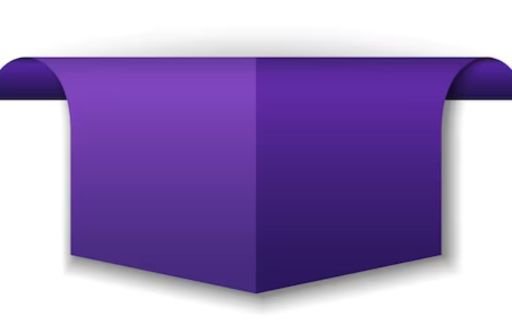

Welcome to our free meta tag creation tool designed to automatically generate optimized metadata for your web pages. With our web app, you can conveniently build title tags, meta descriptions, social tags, and more to boost organic rankings and click-through rates in search engines like Google.

Meta tags provide structured data about a web page using a series of standardized tag formats that search engines understand. They are HTML attributes contained in the head section of the page code describing info like page topics, author names, and access permissions to search crawlers.
Here are some fundamental meta tag types that influence search visibility:
Title Tags - Appear in search results describing the topic of a page to entice clicks. Titles give search engines and visitors a concise understanding of what a particular page is about. They are critical to optimize as the first thing users see when browsing results.
Meta Descriptions - Summarize page content shown under titles to inform searchers. These snippets seen under blue linked titles expand on the topic to engage user interest and prompt clicks to the page.
Open Graph Tags - Define how content looks when shared on social media. The open graph protocol outlines structural data to control what images, descriptions, and branding appear in social shares.
Twitter Cards - Customize Twitter posts for richer visibility driving actions. Comparable to the open graph, Twitter cards standardize markups for better visibility across tweets and engagement on the platform.
There are many additional tag specifications with extensive syntax requirements defined by major tech companies. Manual optimizing is challenging with the need for continual updates as algorithms evolve.
Our meta tag generator automates the creation process for improved search performance with no coding needed.
Meta tags play a vital role in search engine optimization (SEO) and provide valuable information to search engines about your web pages. They include important details such as page titles, descriptions, keywords, and other metadata.
Optimized meta tags can significantly improve your website's visibility, search engine rankings, and click-through rates. By crafting effective meta tags, you can capture the attention of search engine users and drive targeted traffic to your website.
Implementing structured metadata through our generator offers powerful benefits including:
Better Click-Through Rates - Compelling title tags and descriptions get more people to visit your site from search engines by clearly communicating topic relevance.
Increased Indexation - Optimized meta tags mean more pages of your site get discovered and listed by algorithms that can now understand the content.
Social Media Visibility - Rich sharing tags drive more clicks and actions across social platforms by allowing control over how content appears.
SEO Framework - Tags lay the foundation for search engine crawlers to understand page topics as the basis for rankings.
Without proper tagging, pages suffer from poor presence leaving potential visitors unable to find your important content. Our free web app makes the process easy and fast.

We build metadata optimized for today's search landscape with user-friendly automation:
With the most powerful features available at no cost, enhancing your pages for search visibility is now simple.
Creating optimal metadata is straightforward in just a few steps:
Provide the exact page URL you want to create tags for. Our scanner extracts critical details about the page content, topic, and parameters for analysis in subsequent steps.
We propose intelligent title tag options based on page text, media names, and contextual keyword analysis along with a preview highlighting why our engine selected each variant.
Next, edit auto-generated description summaries shown under titles in search listings to be more compelling. Our assistant guides craft engaging snippets within strict length limits.
With a single click, all required meta tags are produced including Open Graph, Twitter, and others using optimized templates for your page. Our engine handles all structural markup automatically.
Finally, copy your perfectly formatted tags in a single click to paste directly into your website code - implementation complete!
With the heavy lifting done through automation, you can build optimized metadata in virtually one click for pages across your site.
Our intelligent generator creates every essential tag type needed for enhanced visibility including:
Our generator handles all the intricate requirements for proper structuring, character limits, image sizing, and content guidance to take the guesswork out of optimizing tags.
Beyond creating tags for your site, our tool also enables benchmarking against top-ranking competitors. By analyzing their metadata implementation, you can model success by deriving themes around:
Running regular comparisons uncovers new opportunities to further optimize tags. Our assistant keeps your metadata aligned with entities dominating first-page results.
A: Metadata provides minimal overall value if your page content itself is not useful, relevant, and well-structured for visitors. Think of tags as an enhancement guiding the discovery of already valuable material, not a shortcut for low-quality pages to rank. Any efforts to further optimize pages through better tagging will have limited effects without the foundation of the unique and engaging underlying content.
A: The open graph protocol and associated tags are designed specifically to optimize how web pages appear when shared across Facebook properties. This allows custom images, descriptions, and branding to appear rather than just a page URL in the Facebook feed to promote clicks and engagement.
The open graph gives control over these elements to the page creator rather than Facebook's internal algorithms making decisions on how to preview links.
A: Metadata resides in the background source code of web pages. It may be visible if you "view page source" but is not openly apparent to visitors. Tags are instead interpreted by search engines and social media crawlers to understand the purpose and content of pages for indexing and sharing abilities.
The metadata itself is not displayed on the user-facing interface. Any visibility comes through better search visibility and social media previews driven by properly defined tags.
A: Current recommendations based on extensive Google data is to keep title tags between 50-60 characters. This ensures full titles are visible in search results without cutting off text automatically with an appended ellipsis.
Longer titles over 60 characters run a higher risk of getting truncated and losing keywords you want associated with pages. At the same time, titles under 40 characters may not have enough specificity in targeting relevant searcher intent phrases. So the 50-60 character range balances the inclusion of critical elements with fully visible titles.
A: In extreme cases, malicious tagging practices could warrant manual penalties. For example, deliberately hiding excessive commercial keywords in metadata that don't reflect real page content is seen as deceptive. However, generally, invalid formats or suboptimal content issues will simply mean lost opportunities rather than outright penalties.
Crawlers may have more trouble understanding topics without tags or default to automated summaries. The goal is crafting tags that best showcase legitimate value to searchers which our generator is designed to assist with rather than gaming the system.
A: Search algorithms and visitor expectations continue to evolve so regular metadata updates are advisable. At a minimum, significant homepage changes, new content sections, or topics added merit revisiting tags for those pages to highlight additions rather than relying purely on original baseline tagging.
Competitor monitoring every 1-2 months also uncovers new patterns that may inform potential optimizations as the wider market shifts. Think of tags not as a one-time implementation but rather as an ongoing optimization surface.
A: For multilingual sites targeting global visitors, adapting English metadata into different languages is advisable. Our tool incorporates automatic translation functionality powered by state-of-the-art neural models preserving tag format structure while converting the actual text.
This allows tailoring keywords, descriptions, and titles into the most appropriate cultural context across languages to serve different regions.
A: Our online application supports unlimited meta tag generation without arbitrary caps on site size, number of pages, or use frequency. The bulk processing uploader is built to intake sites with thousands of pages ensuring capabilities scale.
With a cloud infrastructure pipeline, we continuously release updates supporting higher throughput. Combined with free ongoing access, all websites can benefit through comprehensive and ongoing metadata optimization.
Optimizing tags is a proven way to improve click-through rates, social shares, and search engine visibility of your important content. Our free meta tag generation tool eliminates the need for manual creation or coding expertise to add proper schemas.
We provide unrestricted access to the latest algorithms powering today's top search platforms so your pages can tap into maximum visibility. Combined with high-quality content itself, our web app enables truly optimized discovery across channels.